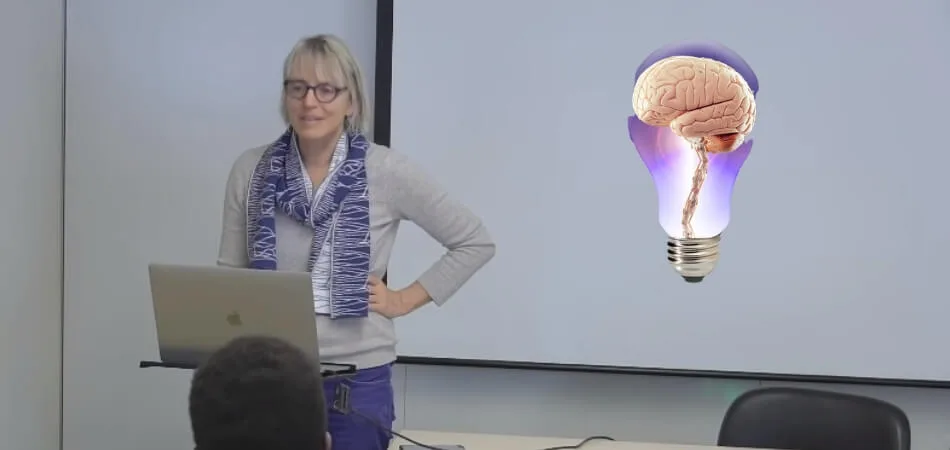There are various types of neuroscience conferences, each with a unique focus. Some conferences highlight the latest research, while others explore clinical applications or technological innovations. These events attract diverse professionals, sparking interest in how they contribute to scientific progress. If you’ve ever wondered, What is a Brain Conference?, you’re not alone.
A Brain Conference is a gathering where experts from different fields come together to explore and discuss the human brain’s complexities. The purpose of these conferences is to share new research, foster collaborations, and advance our understanding of brain functions. They are platforms where science meets innovation, shaping neuroscience’s future.
Still curious about Brain Conferences? This article covers everything you need to know, from their purpose to their impact on the field. Dive in to discover how these events are driving advancements in neuroscience.
Historical Overview of the Brain Conference
The concept of Brain Conferences emerged in the late 20th century, marking a significant milestone in neuroscience. These events originated as small, academic gatherings, growing quickly due to advancing research and technology. Today, they are global platforms, bridging the gaps between various neurological disciplines.
At first, these conferences focused on fundamental brain research, such as neuroanatomy and neurophysiology. With the development of knowledge, these meetings expanded in scope to include topics such as cognitive science and brain-computer interfaces. This process mirrors the dynamic nature of neuroscience itself, constantly adapting to discoveries.
In recent years, Brain Conferences have become more flexible, reflecting the complexity of brain studies. They now attract neuroscientists, psychologists, tech experts, and educators. This diversity fosters a rich exchange of ideas, pushing the boundaries of what we know about the brain.
What is a Brain Conference?
It brings together experts in a wide range of fields to discuss and explore the many functions of the human brain. This conference provides a platform for neuroscience innovation, collaboration, and education. Here’s why these conferences are so crucial to scientific advancement
Role in Research Dissemination
A Brain Conference is an essential forum for disseminating new scientific research. Researchers present findings from recent studies, offering a platform for immediate peer review and discussion. This feedback is essential for refining theories and methods, which in turn accelerates scientific discovery.
Increasing Collaboration
These events are designed to foster professional relationships and collaborations across disciplines. Brain Conferences facilitate interdisciplinary problem-solving by bringing together neuroscientists, psychologists, data analysts, and more, enhancing the potential for major brain function and disorders breakthroughs.
Commercial and Technological Innovations
Industry professionals frequently use Brain Conferences to showcase new technologies, from advanced neuroimaging equipment to innovative software solutions that assist in brain research and diagnostics. This commercial aspect highlights neuroscience findings’ practical applications in the healthcare and technology sectors.
Training and Professional Development
Conferences often include workshops and seminars focused on the latest methods and technologies in neuroscience. These sessions are invaluable for professionals looking to enhance their skills or expand their knowledge base, ensuring they remain at the cutting edge of their field.
Policy and Advocacy
Brain Conferences also play a key role in shaping policy and promoting issues related to brain health and science. Discussions often cover ethical considerations, funding strategies, and the societal implications of neuroscience research, contributing to informed policy-making that supports scientific advancement.
Future Trends and Directions
These gatherings are pivotal in setting the agenda for future neuroscience research. Discussions and presentations at Brain Conferences help identify emerging trends and critical areas needing investigation, guiding future studies’ focus and funding.
Taking part in a Brain Conference provides an excellent opportunity for professional development, learning, and sharing in neuroscience. In addition to personal development, these advances contribute to public health and brain science.
Types of Brain Conferences You Can Attend?
There are many different types of Brain Conferences, each focusing on a specific aspect of neuroscience. They range from academic symposiums to industry-focused events. Whether you’re a researcher, student, or healthcare professional, there’s a conference tailored to your interests.
Academic Research Conferences
These conferences are essential for scientists to present and discuss their latest research findings. They focus on fundamental topics like neurobiology and cognitive neuroscience, making them ideal for networking and keeping up with the latest research in the field.
Clinical Neuroscience Conferences
Designed for healthcare professionals, these conferences focus on neuroscience clinical aspects. Attendees learn about the latest in diagnosis, treatment, and management of neurological disorders, with discussions on new therapeutic techniques and clinical trials.
Neurotechnology and AI Conferences
These conferences explore the intersection of neuroscience and technology, focusing on advancements like neuroimaging, brain-computer interfaces, and AI applications. They are perfect for tech enthusiasts and professionals looking to understand how technology revolutionizes brain research.
Neuroeducational Conferences
In these events, neuroscience is applied to education, exploring how brain research can enhance teaching and learning. They attract educators, psychologists, and researchers interested in bridging the gap between neuroscience and educational practices.
Public Outreach and Awareness Conferences
The purpose of these conferences is to simplify complex neuroscience topics for the general public. They often include interactive sessions and workshops, making them excellent for anyone interested in learning about brain health and the basics of neuroscience.
Each type of Brain Conference offers unique insights and opportunities. The contributions they make to neuroscience make it an exciting and constantly evolving field. In light of this diversity, staying informed about upcoming brain conferences can significantly contribute to your professional development.
Who Should Attend the Brain Conference?
Brain Conferences are not just for neuroscientists; they’re a melting pot of diverse professionals. From researchers to educators, these conferences cater to a wide audience. Understanding who should attend can help you decide if it’s right for you.
Neuroscientists and Researchers
These professionals are the backbone of Brain Conferences. They present research, engage in discussions, and form collaborative networks. Their participation is crucial for sharing advanced findings and theories in neuroscience. Researchers gain invaluable insights and feedback from their peers at these events.
Medical Professionals and Clinicians
Doctors, neurologists, and psychiatrists benefit greatly from attending. These conferences provide updates on the latest treatments and diagnostic tools. They’re a resource for learning about advancements in brain health and neurology. Clinicians can apply this knowledge directly to improve patient care.
Students and Academic Scholars
A student in neuroscience, psychology, or a related field can benefit in a variety of ways. They get exposed to current research trends and networking opportunities. These conferences can shape their academic journey and future career path. It’s an excellent way for them to immerse themselves in the field.
Technology and AI Experts
With the growing role of tech in neuroscience, these experts find Brain Conferences enlightening. They explore how technology like AI and machine learning intersects with brain research. Their participation fosters discussions on future neuroscience technological advancements. It’s an opportunity to see how their work can impact brain studies.
Educators and Trainers
These conferences can be helpful to those who teach or provide training. They learn how neuroscience research can be applied in educational settings. This knowledge helps in developing more effective teaching It’s an avenue to bridge the gap between neuroscience and education.
General Public and Enthusiasts
You can still find brain conferences interesting even if you aren’t an expert. They offer a chance to learn about the brain and its functions. These events raise awareness and interest in neuroscience among the general public. It’s a unique opportunity to learn about neuroscience.
Brain conferences are open to everybody and serve a wide range of participants. It doesn’t matter if you’re a seasoned pro or a beginner, everyone contributes to these sessions. These gatherings are lively and rich in variety. Understanding the purpose of workshop at a conference can further increase the experience for all attendees.
Benefits of Participating in a Brain Conference
Taking part in a brain conference benefits both professional and personal growth. These events are not just academic gatherings but are platforms for holistic development. Let’s explore the key advantages of being part of such a conference.
Networking Opportunities
Attending a Brain Conference allows you to connect with experts and peers in neuroscience. You can meet researchers, clinicians, and industry professionals who share your interests. Building these professional relationships is crucial for career growth and industry trends awareness.
Knowledge improvement
These conferences provide valuable insights into the latest research and developments in brain science. Attendees can learn about groundbreaking studies and upcoming technologies. This continuous learning is vital for enhancing understanding and applying new knowledge in the rapidly evolving field of neuroscience.
Skill Development
Workshops and interactive sessions at these events help attendees hone specific skills. Participants engage in hands-on activities that teach them how to use new tools and methodologies. This practical experience benefits both seasoned professionals and students alike.
Career Advancement
For professionals and students, Brain Conferences can be stepping stones for career growth. They provide exposure to potential employers, funding agencies, and collaborators. This visibility can help attendees find job opportunities and internships, advancing their careers significantly.
Interdisciplinary Learning
These gatherings bring together individuals from various disciplines, offering a broader perspective on neuroscience. Attendees may include neuroscientists, psychologists, educators, and technology experts. Engaging with diverse viewpoints fosters collaboration and can lead to innovative research and exciting new projects.
Public Education
During these conferences, complex neuroscience topics are simplified for the general public. They feature sessions designed to make science accessible to non-experts. This helps raise awareness about brain health and encourages community engagement, empowering individuals to make informed decisions regarding their well-being.
Innovation Inspiration
Being surrounded by advanced research and discussions can spark innovative ideas. Conferences create an environment friendly to creative thinking and problem-solving. Participants often leave feeling motivated and equipped with fresh perspectives to tackle challenges in their work effectively.
The Brain Conference isn’t just about gaining knowledge; it’s about joining a community dedicated to neuroscience advancement. It’s an experience that benefits both professional and personal growth, while also showcasing various types of conferences available to explore different aspects of neuroscience.
Tips to Get the Most Out of the Brain Conference
Attending a brain conference can be a transformative experience if approached correctly. To maximize the benefits, it’s essential to prepare and engage actively. These tips will guide you on how to extract the most value from your conference experience.
- Plan Your Schedule: Review the conference agenda ahead of time to identify relevant sessions, ensuring you prioritize key talks, workshops, and networking opportunities that align with your interests and goals for the event.
- Engage in Networking: Actively introduce yourself to fellow attendees and industry experts, exchanging contact information to build professional relationships that can foster collaboration and knowledge sharing in the future.
- Participate Actively in Sessions: Don’t just listen passively; engage in discussions by asking questions and sharing your insights, which improves your understanding and makes the sessions more valuable for everyone involved.
- Take Detailed Notes: Document important points and insights from presentations to aid retention and serve as a reference afterward, allowing you to share valuable information with colleagues who could not attend.
- Follow-Up Post-Conference: Reach out to the contacts you made during the event through email or professional networks, nurturing these relationships and sharing insights from the conference to extend its benefits.
- Reflect on Your Experience: Take time after the conference to consider what you learned and how to apply this knowledge in your work, which is crucial for internalizing the insights gained during the event.
It can be a significant step in your professional development to attend a brain conference. With these tips, you’re set to make the most out of it, turning the experience into an opportunity for growth and development.
Frequently Asked Questions
Experts gather at Brain Conferences to discuss the latest developments in neuroscience. These gatherings are necessary for sharing knowledge, fostering collaboration, and advancing the field. Below are some frequently asked questions that provide further insight into what Brain Conferences entail.
What Are the Key Features of a Brain Conference?
There are usually presentations, workshops, and panel discussions led by experts in the field at Brain Conferences. These events focus on various aspects of neuroscience, including research findings, clinical applications, and technological advancements. Attendees gain valuable insights from leading scientists and practitioners, which can be beneficial for their work and studies.
Who Organizes Brain Conferences?
Academic institutions, professional societies, and industry leaders organize Brain Conferences. These organizations aim to promote collaboration and innovation in neuroscience. By bringing together experts from different backgrounds, they create a rich environment for learning and networking.
How Can Attendees Benefit from Brain Conferences?
Many benefits can be gained by attending Brain Conferences, including exposure to the latest research and technology. Networking opportunities allow participants to connect with leading experts and peers. These connections can lead to collaborative projects, job opportunities, and an enriched understanding of the field.
What Should You Expect at a Brain Conference?
At a Brain Conference, expect a dynamic environment filled with presentations, discussions, and networking events. Participants often engage in interactive sessions, gaining practical knowledge and skills. The diverse range of topics ensures that there’s something for everyone, regardless of their expertise level.
How Are Brain Conferences Impacting Neuroscience?
Through the exchange of ideas and findings, Brain Conferences have a significant impact on neuroscience. They promote interdisciplinary collaboration, driving innovation in the field. The insights gained from these gatherings often influence future research directions and clinical practices, shaping the development of brain science.
Conclusion
Taking a broad view of the field of Brain Conferences, we’ve discovered that they can be multifaceted. Professionals from diverse fields gather at these events to share ideas, learn, and innovate in the field of neuroscience. So, “What is a brain conference?” It is an active platform for collaboration, offering unparalleled opportunities for networking, skill development, and career growth.
You can gain valuable insight into brain science from these conferences, whether you are a researcher, clinician, educator, or enthusiast. Attendees can contribute to neuroscience by actively participating and applying their learnings. Brain Conferences aren’t just events; they are engine for career development and progress.








